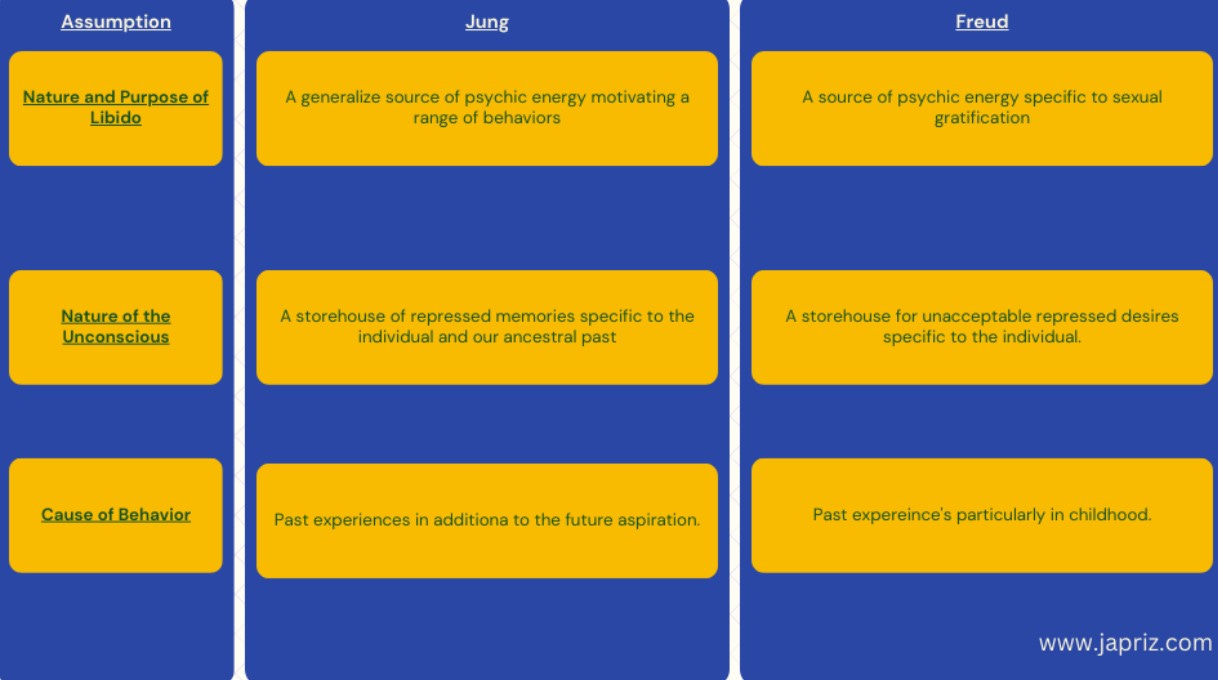Unveiling the Intriguing Depths of Jung's Theory of Personality: Unraveling the Mysteries of the Unconscious Mind
Exploring Jung's Theory of Personality: Analyzing Analytical Psychology and the Unconscious Mind
Carl Gustav Jung, a Swiss psychiatrist and psychoanalyst, was the visionary behind analytical psychology. Through his groundbreaking contributions, Jung left an indelible mark on numerous disciplines including psychiatry, anthropology, archaeology, literature, philosophy, psychology, and religious studies.
It is important to note from the beginning that Carl Jung was initially considered Sigmund Freud's protégé.
In fact, Freud saw the young Jung as his successor, who would carry forward his revolutionary science of psychoanalysis. Jung was an early supporter of Freud's psychoanalysis and even became the president of the International Psychoanalytical Association at Freud's request.
However, during his 1912 lecture tour in the United States, Jung publicly criticized Freud's theory of the Oedipus complex and his focus on infantile sexuality. This led to a significant rift between them, as most of Jung's assumptions in his model of analytical psychology stemmed from his theoretical differences with Freud.
Jung decided to develop his own version of psychoanalytical theory, establishing it as a comprehensive system separate from Freud's psychoanalysis.
Freud vs. Jung
Contrasting Views on Personality Freud primarily focused on the unconscious mind and its direct connection to suppressed thoughts and primal human drives like sex, violence, and aggression.
According to Freud, the unconscious served as a repository for unacceptable repressed desires unique to each individual. He divided the human psyche into three components: the id, the ego, and the superego.
The id represented unconscious drives, the ego connected to conscious experiences, and the superego mediated behavior by balancing the impulses of the id and the ego.
On the other hand, Jung acknowledged Freud's notion of the unconscious mind but placed greater emphasis on an individual's lived experiences and future aspirations. Jung viewed the unconscious as a storehouse of repressed memories specific to the individual and their ancestral past. Moreover, he introduced the concept of the collective unconscious, which encompassed a shared reservoir of wisdom transcending individual experiences.
Jung's Theory of Personality
Key Concepts Jung's theory of personality revolved around the structure of the mind. He expanded the concept of the unconscious mind, emphasizing the conscious ego as the center of self-awareness.
Jung's theory is built on:
Two personality attitudes: extraversion/extraversion and introversion.
Four functions: thinking, sensation, intuition and feeling
The conscious ego played a crucial role in making individuals aware of their internal processes and the external world. Adjacent to the conscious ego, and below conscious awareness, was the personal unconscious, which contained thoughts, memories, and experiences momentarily not in focus or repressed due to emotional threat.
Jung introduced the idea of complexes, which were collections of thoughts, feelings, attitudes, and memories centered around specific concepts. Complexes influenced individuals' thoughts, feelings, and behaviors, particularly in relation to religion, politics, or other ideologies.
While the personal unconscious was unique to each individual, Jung proposed the existence of the collective unconscious, which he believed to be transpersonal in nature. The collective unconscious represented a repository of universal wisdom shared by all people, accumulated over time and passed down from generation to generation. This collective wisdom was stored in the form of archetypes—universal thought patterns, behavior rituals, and symbols triggered by specific situations.
Jung's theory also introduced the concept of individuation, which referred to the lifelong psychological process of differentiating the self from both conscious and unconscious elements. Other significant concepts in Jung's model of analytical psychology included synchronicity, introversion, extraversion, archetypal phenomena, and psychological complexes.
Dynamics of Personality According to Jung Jung viewed psychic energy as a motivational force guiding individuals towards achieving balance within their personalities. This balance was achieved through the ebb and flow of psychic energy among various aspects of the self, guided by three fundamental principles.
Note : “Ebb and flow” means that sometimes our life flows toward our hopes and dreams, and sometimes it flows away.
The principle of opposites suggested that for every conscious or unconscious reaction, an opposing reaction existed elsewhere within the personality. The principle of equivalence stated that psychic energy taken from one aspect of the personality would manifest elsewhere within the system. Lastly, the principle of entropy implied that when one aspect of the personality had a greater amount of psychic energy, it would flow back to the weaker aspect, restoring balance. Personality Assessment in Jungian Psychology Jung employed the word association test as a means of identifying problematic complexes within the client's psyche. By examining the associations and observing the emotional and physiological reactions they elicited, Jung could assess the client's level of emotionality and uncover connections to repressed complexes.
The Myers-Briggs Type Indicator (MBTI) is another assessment tool based on Jung's theory of personality. It illustrates differences in how individuals perceive and make judgments about their experiences.
The MBTI focuses on two general types of personality attitudes: extroversion and introversion. Extroversion involves an outward orientation, investing psychic energy in external events and objects, while introversion reflects an inward orientation, investing psychic energy in internal experiences. Furthermore, Jung identified four functions of personality: sensation, thinking, feeling, and intuition, each characterized by a specific orientation toward understanding the environment. In conclusion, Carl
Jung's theory of personality, grounded in analytical psychology, offers a distinct perspective on the human psyche. By exploring the structure of the mind, the collective unconscious, and key concepts like individuation and archetypes, Jung presents a comprehensive framework for understanding the complexities of personality. His ideas continue to influence the field of psychology and contribute to our understanding of the human experience.



